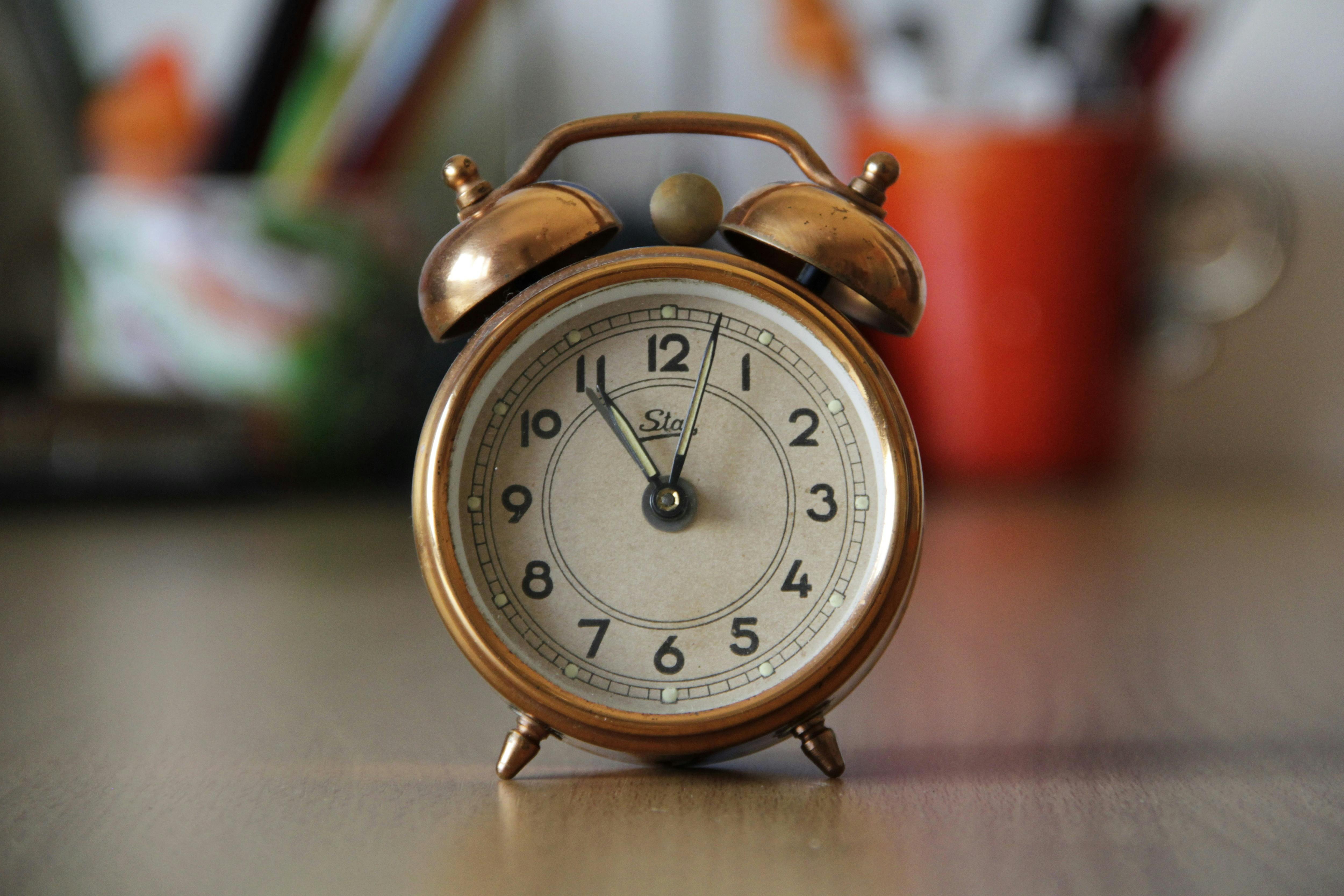Waking up to the sound of your alarm at 7:15 can feel like a challenge, especially if you're not a morning person. However, with the right strategies, you can transform this moment into the start of a highly productive day. Setting your alarm for 7:15 is more than just a routine—it's an opportunity to take control of your mornings and set the tone for success. In this article, we’ll explore why waking up at 7:15 is beneficial, how to make the most of it, and practical tips to ensure your mornings are both enjoyable and efficient.
Many people underestimate the power of a well-structured morning routine. The time between waking up and starting your day is crucial for setting intentions, boosting energy levels, and preparing mentally for the tasks ahead. Whether you're a student, a professional, or a stay-at-home parent, the way you begin your day can significantly impact your productivity and overall well-being. That’s why understanding the importance of waking up at 7:15 and how to optimize this time is essential.
In the following sections, we’ll dive deep into the science behind morning routines, share expert advice, and provide actionable tips to help you wake up refreshed and ready to tackle the day. By the end of this article, you’ll have a clear roadmap for transforming your mornings and making the most of your alarm at 7:15.
Read also:Unraveling The Mysteries Of Gloria Borgers Illness
Table of Contents
- Benefits of Waking Up at 7:15
- The Science of Morning Routines
- How to Make Your Alarm More Effective
- Morning Routines of Successful People
- Tips for a Productive Morning
- Overcoming the Snooze Button
- Creating a Relaxing Morning Environment
- The Role of Exercise in Your Morning
- Nutrition for a Successful Day
- Conclusion
Benefits of Waking Up at 7:15
Waking up at 7:15 offers several advantages that can positively impact your day. First, it allows you to align your schedule with natural circadian rhythms. Research shows that waking up shortly after sunrise helps regulate your body’s internal clock, improving sleep quality and overall energy levels.
Second, starting your day at 7:15 gives you a head start on your responsibilities. Whether you need to prepare for work, school, or personal tasks, this time provides a buffer to ease into your day without feeling rushed. It also allows you to dedicate time to self-care activities like meditation or journaling.
Finally, waking up early fosters discipline and consistency. By committing to a set wake-up time, you build habits that contribute to long-term productivity and mental clarity.
The Science of Morning Routines
Morning routines are more than just habits—they’re backed by science. Studies have shown that the first hour after waking plays a critical role in determining your mood and cognitive function for the rest of the day. This phenomenon is often referred to as the "morning momentum effect."
One key aspect of a successful morning routine is cortisol levels. Cortisol, the hormone responsible for alertness, naturally peaks in the early morning. By waking up at 7:15, you can harness this surge of energy to tackle important tasks or engage in mindfulness practices.
Additionally, morning routines help reduce decision fatigue. When you establish a consistent pattern of activities, you eliminate the need to make unnecessary choices, freeing up mental resources for more critical decisions later in the day.
Read also:Unveiling The Mystery Of Sophie Rains Age
How Morning Routines Impact Productivity
A well-structured morning routine can boost productivity by creating a sense of purpose and direction. For example, starting your day with goal-setting or planning exercises ensures that you prioritize high-impact tasks. This proactive approach minimizes distractions and keeps you focused throughout the day.
How to Make Your Alarm More Effective
Setting your alarm for 7:15 is just the first step. To ensure you wake up feeling refreshed, consider these tips:
- Place your alarm clock across the room to force yourself out of bed.
- Use a gradual alarm that mimics natural sunlight to wake you up gently.
- Avoid hitting the snooze button, as it disrupts your sleep cycle and leaves you feeling groggy.
Another effective strategy is to pair your alarm with a motivating sound or playlist. Music has been shown to elevate mood and energy levels, making it easier to transition from sleep to wakefulness.
Choosing the Right Alarm Tone
The type of sound your alarm makes can significantly affect how you wake up. Research suggests that melodic alarms, as opposed to harsh beeping sounds, are more effective at promoting alertness and reducing grogginess. Experiment with different tones to find what works best for you.
Morning Routines of Successful People
Many successful individuals credit their achievements to their morning routines. Below is a table summarizing the morning habits of some well-known figures:
| Name | Profession | Morning Routine |
|---|---|---|
| Tim Cook | CEO of Apple | Wakes up at 3:45 AM, exercises, and reads customer feedback. |
| Oprah Winfrey | Media Mogul | Meditates, practices gratitude, and enjoys a healthy breakfast. |
| Elon Musk | CEO of Tesla and SpaceX | Wakes up at 7 AM, reviews emails, and plans his day. |
Lessons from Their Routines
While their routines differ, these individuals share common elements such as mindfulness practices, physical activity, and intentional planning. Incorporating similar habits into your own morning routine can help you emulate their success.
Tips for a Productive Morning
Here are some actionable tips to make your mornings more productive:
- Prepare the night before by laying out your clothes and planning your schedule.
- Hydrate immediately after waking up to kickstart your metabolism.
- Engage in light stretching or yoga to loosen up your muscles.
- Spend 10-15 minutes journaling or reflecting on your goals.
By implementing these practices, you’ll create a seamless transition from sleep to productivity.
Overcoming the Snooze Button
The snooze button might seem tempting, but it can sabotage your morning. Each time you hit snooze, you disrupt your REM cycle, leading to grogginess and reduced alertness. To overcome this habit:
- Set a single, firm wake-up time instead of relying on multiple alarms.
- Place your alarm out of arm’s reach to physically get out of bed.
- Visualize the benefits of waking up on time to motivate yourself.
Breaking the snooze habit takes time, but the rewards are worth it.
Creating a Relaxing Morning Environment
Your surroundings play a significant role in how you feel in the morning. To create a calming atmosphere:
- Dim the lights and avoid bright screens immediately after waking up.
- Incorporate soothing scents like lavender or eucalyptus into your space.
- Play soft background music or nature sounds to enhance relaxation.
A peaceful environment sets the stage for a positive and energized start to your day.
The Role of Exercise in Your Morning
Exercise is a cornerstone of a healthy morning routine. Physical activity boosts endorphins, improves focus, and enhances overall mood. Whether it’s a quick jog, yoga session, or strength training, incorporating movement into your morning can have lasting benefits.
Research also shows that morning workouts improve sleep quality and regulate appetite throughout the day. Even a 15-minute workout can make a noticeable difference in your energy levels.
Choosing the Right Exercise
The best type of exercise depends on your preferences and fitness goals. For example, high-intensity interval training (HIIT) is great for burning calories, while yoga promotes flexibility and stress relief. Experiment with different activities to find what suits you best.
Nutrition for a Successful Day
What you eat in the morning directly impacts your performance and energy levels. A balanced breakfast should include protein, healthy fats, and complex carbohydrates. For example:
- Oatmeal with nuts and berries
- Avocado toast with eggs
- Smoothie with spinach, banana, and almond milk
Avoid sugary cereals or processed foods, as they can cause energy crashes later in the day.
Conclusion
Waking up to your alarm at 7:15 doesn’t have to be a dreaded experience. With the right mindset and strategies, you can transform your mornings into a source of motivation and productivity. From understanding the science of morning routines to adopting habits of successful individuals, this article has provided a comprehensive guide to mastering your mornings.
Now it’s your turn to take action! Start by implementing one or two tips from this article and gradually build a routine that works for you. Share your progress in the comments below or inspire others by sharing this article with friends and family. Remember, every great day starts with a great morning—make yours count!

